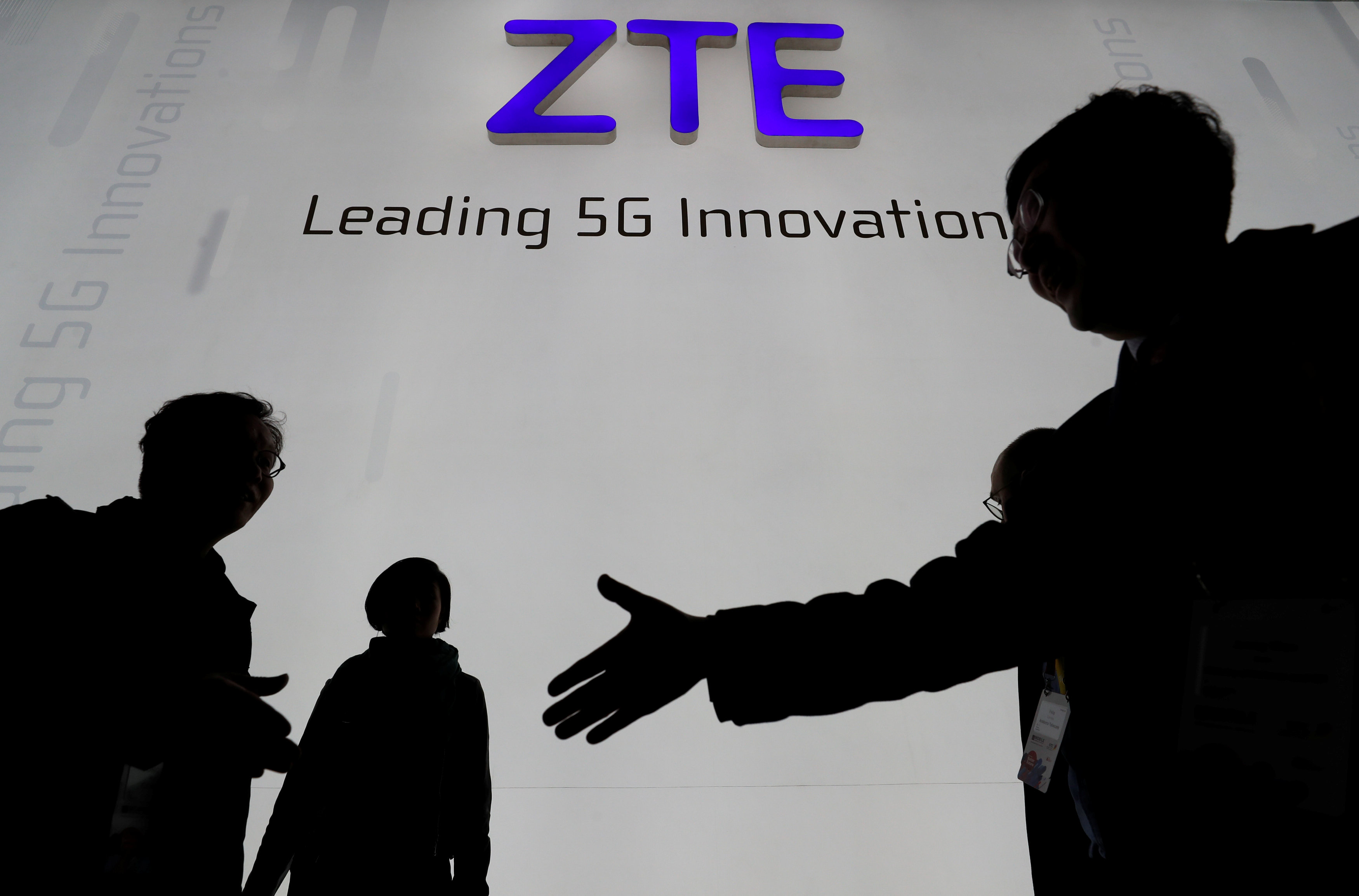
The Wall Street Journal reports that ZTE, the Chinese telecommunications firm in the crossfire of a U.S.-China trade fight, has asked the U.S. government for a stay of its order banning American companies from selling to the firm. The Shenzhen-based company said that it formally submitted the request for the reprieve to the Commerce Department and that it has complied with the department's request for additional information in response to the ban. It disclosed the news in a filing Sunday with the Hong Kong stock exchange. A Commerce Department representative couldn't immediately be reached for comment. ZTE has been at the center of the trade dispute between the U.S. and China since it was hit with the sales ban last month for violating the terms of a settlement resolving evasion of U.S. sanctions against Iran and North Korea. Chinese officials raised the issue of the ban last week during a visit to China by a U.S. trade delegation.
The Washington Post has published an editorial stating that a two-day meeting between Trump administration trade officials and Chinese representatives concluded in Beijing on Friday with an agreement to meet again later, and little else. This was no surprise, considering that the president's team brought demands to China that ranged from defensible — ending subsidies for high-tech industries, better access to investment opportunities for U.S. companies — to arbitrary: a $200 billion reduction in the bilateral trade deficit by the end of 2020. China had its own demands, including an end to the U.S. threat of tariffs on Chinese goods. This exchange was certainly preferable to a trade war, but it also illustrated a basic problem with Mr. Trump's approach. Even if you grant there may be some strategic value to threats as a negotiating tool, no one — not American trading partners, not American business and workers — can tell whether the president actually would accept a compromise, or what its content might be. Similar uncertainty prevails in the U.S. relationship with Europe, freshly granted a 30-day respite from Mr. Trump's proposed tariff on steel and aluminum. And the same goes for Canada and Mexico. Last month, in fact, the president all but confessed that he sees uncertainty as a weapon against them in talks over revising the North American Free Trade Agreement. "We can negotiate forever," he said. "Because as long as we have this negotiation going, nobody is going to build billion-dollar plants in Mexico." Oh no? Canada and Mexico can, and do, hedge against Mr. Trump's unpredictability by pursuing closer economic ties with China and Europe.
- 2018-05-04 China denies pointing powerful lasers at U.S. aircraft
- 2018-05-03 Trump praises China's Xi as trade talks begin in Beijing
- 2018-05-02 Chinese state media has a message for the US ahead of trade talks in Beijing
- 2018-05-01 White House Considers Restricting Chinese Researchers Over Espionage Fears Image
- 2018-04-30 China Sends Foreign Minister to Pyongyang
- 2018-04-27 China is trying to lure Trump into a bad deal on trade
- 2018-04-26 Beijing Ready to Hit Back if U.S. Curbs Chinese Investments
- 2018-04-25 Steven Mnuchin Will Head to China as Trade Tensions Mount
- 2018-04-24 Worrying signs China is moving backward on reforms, warns U.S. official
- 2018-04-23 How China Is Buying Its Way Into Europe
- Bloomberg At World Bank, China Moves to the Grown-Up Table
- New York Times "Orwellian Nonsense"? China Says That's the Price of Doing Business
- Bloomberg Global Finance Titans Ready for China's Chance of a Lifetime
- www.straitstimes.com North Korea, economy on agenda at Japan-China-South Korea summit in Tokyo
- Reuters ZTE says asked US Commerce Department to suspend business ban
- CNBC US condemns China for 'Orwellian nonsense' over airline websites
- Wall Street Journal Scientists in China Race to Edit Crop Genes, Sowing Unease in US
- The Hill Tech firms fear Chinese retaliation after US security crackdown
- Financial Times Apple supplier raises fears over US-China trade spat
- www.chicagotribune.com US firms, debt could be China's targets if US plays hardball on trade
- finance.yahoo.com Warren Buffett: Trade with China is a 'win-win situation'
- Reuters Buffett says US and China will avoid 'something extremely foolish' on trade
- Reuters Marx's German birthplace unveils controversial statue of him
- Bloomberg China Is Quietly Setting Global Standards
- Wall Street Journal Trump and the 'Chimerica' Crisis
- USA Today Donald Trump could revive TPP to pressure China
- Los Angeles Times Trump team's talks in China raise both questions and fears of a trade war